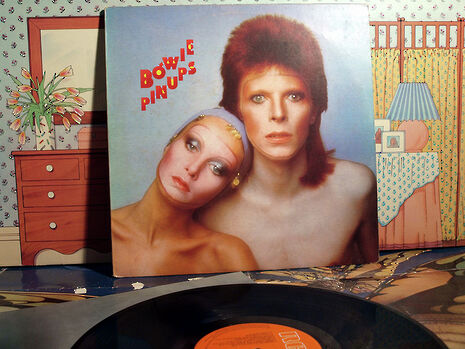A queerer perspective: From supporting role to centre stage
In his first column, Louis Shankar talks about queer culture taking centre stage

Culture has always fascinated me. I study art history; I’ve spent the past three years looking at visual culture, focusing mainly on Western Europe since the 1850s. But I have been wanting to write more about contemporary culture: the art, music, and television that we engage with on a daily basis. It bombards us, surrounds us, creates us. We have a so-called mainstream but this seems to be expanding rapidly, multiplying faster than can be easily mapped.
So I have been looking into the periphery, into what is sidelined and overlooked. So I have now settled on what might be called ‘queer culture’ (or LGBT+ culture). A few decades ago, this was almost entirely underground; now, it is beginning to step into the spotlight, albeit usually as a supporting role rather than the lead. Vital issues are still often brushed under the carpet. Yet the cultural sphere has always been more sensitive and receptive to change: take the artistic responses to AIDS that have emerged in theatre (Angels in America), film (Philadelphia), and the visual arts (David Wojnarowicz).
What has started to really fascinate me – and what I hope to write about over the coming weeks – is the overlap between the queer and the mainstream. How are LGBT+ issues dealt with in pop culture? When are they addressed and who addresses them? There are some really interesting examples, many of which disguise their queerness or have it overlooked. In being subsumed into the hegemony of the conventional, the radical and the other is jettisoned or erased. I am hoping to rediscover and to exhume some of this. I want to celebrate the fact that queerness is being celebrated like never before: we have TV shows and films that focus on same-sex relationships being nominated for and winning awards.
I don’t think this is simply a manifestation of more mainstream aspects of queer culture; instead, it is the queering of aspects of mainstream culture. What we are seeing is genuine engagement with important, alternative issues from the centre. Take as an example the huge boycott of North Carolina since the passing of the Public Facilities Privacy & Security Act; Bruce Springsteen, Ringo Starr, Cirque du Soleil, Demi Lovato, and more have all cancelled appearances in the state in recent weeks.
As I write this, sat in a coffee shop, Eyes Shut by Years & Years happens to be playing in the background. Their frontman and lyricist, Olly Alexander, was a great inspiration for me in pursuing this topic. Over the past year, he has helped to start conversations about LGBT+ issues, writing about them in songs, performing on stage wrapped in a rainbow flag, creating music videos that celebrate sexual diversity. Talking openly about homophobia, body image issues and mental health problems, he has emerged as an important new voice for LGBT+ youth.
The video that accompanies Desire, Years & Years’ most recent single, has been described as a “pansexual orgy”, “camp, queer, and proudly sexual.” Upon its release, Alexander wrote an extended Facebook post describing the rationale behind it (one that could effectively constitute this whole column): “Pop music has a pretty good track record of embracing queer culture, it’s been a safe place for some of our most visible queer icons, we have more out and open non-straight stars than ever before.” This whole idea is something I want to return to: with the deaths of both Prince and Bowie this year, queerness in music and alternative masculinities have been receiving attention. But such direct engagement, and its wider implications, is particularly poignant: “So yeah, gay people have sex, and it’s not just gay people, it’s all kinds of people! All these non-straight people, they’re out there, having sex! Sex, between two consenting adults, can be a healthy, positive, safe and enjoyable thing.”
Merely listening to the song alone cannot reveal this: it is just an upbeat pop song about desire. Only if you watch the video or are aware of the context do you understand its otherness. Once in the mainstream, Alexander has the chance to proclaim and celebrate their otherness. Picking up on other examples of this, I hope to explore and reveal how queerness and LGBT+ issues have taken centre stage. Hopefully, they are now there to stay.
 News / Cambridge launches plan to bridge ‘town and gown’ divide27 October 2025
News / Cambridge launches plan to bridge ‘town and gown’ divide27 October 2025 Arts / Reflections on the Booker Prize 202528 October 2025
Arts / Reflections on the Booker Prize 202528 October 2025 News / Students launch women’s society excluding trans women31 October 2025
News / Students launch women’s society excluding trans women31 October 2025 News / College rowing captains narrowly vote to exclude trans women31 October 2025
News / College rowing captains narrowly vote to exclude trans women31 October 2025 News / SU referendums heat up as campaigners claim intervention29 October 2025
News / SU referendums heat up as campaigners claim intervention29 October 2025









